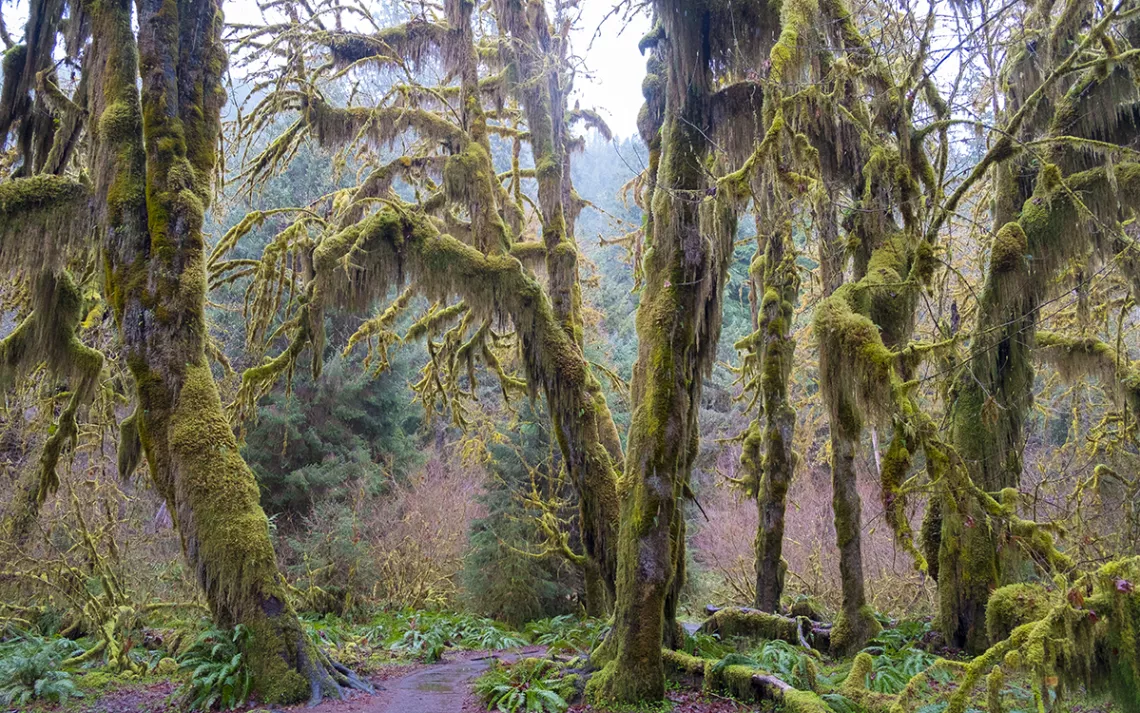Another Wilderness Bill?
Trump signed one for 3 million acres. The House wants 1.37 million more.

Olympic National Park, which would be expanded under the bill. Photo by sajintour/iStock
Amid the barrage of bad news about attacks on clean water, bedrock environmental law, and public lands, there’s some good news. Yes, really. On February 12, the House of Representatives passed the largest wilderness bill in a decade. If ultimately signed into law, it would bestow upon 1.37 million acres of wild land in Colorado, California, and Washington State the highest level of federal protection.
The Protecting America's Wilderness Act passed 231 to 183, with six Republican votes. It’s a blend of six bills that would expand existing wilderness boundaries, create new wilderness areas, and add 1,000 miles to the National Wild and Scenic Rivers network.
“We have been working on this legislation for more than 20 years,” Representative Diane DeGette (D-CO) said in a statement. “The areas that will be protected under this bill are some of the most beautiful and pristine landscapes that our country has to offer. And by officially designating them as wilderness, as this bill does, we will finally be providing them the permanent protection they deserve.”
Among the bill’s beneficiaries are 600,000 acres of “low-to-mid-elevation areas across Colorado,” including Handies Peak, Dolores River Canyon, and Little Bookcliffs. In Northern California, nine wilderness areas would be expanded and eight new ones established. In central California, 400 miles of hiking trail would be built to connect wilderness areas within Los Padres National Forest. And in Washington, more than 100,000 acres on the Olympic Peninsula would become wilderness.
Wilderness is the strongest level of federal lands protection, a product of the 1964 Wilderness Act, which created a framework for designating areas “unimpaired for future use.” Commercial activity, vehicles, and motorized equipment are not permitted. Even bikes are a no-no. It’s wilderness in the purest sense, the kind that John Muir yodeled on about.
Athan Manuel, the director of the Sierra Club's lands protection program, says votes like these put moderate Republicans in a tricky spot: "Are you going to stand with the oil and mining industry or with public lands?" In direct contradiction to the verbiage coming out of the White House, the bill’s authors hail public lands as “one of the best resources we have to respond to the climate crisis.” The fact sheet cites wilderness areas and wild and scenic rivers as vehicles for safeguarding biodiversity, habitat, ecological connectivity, and clean air.
The bill could also be a win for environmental justice, as it would protect part of Southern California’s San Gabriel Mountains for recreation and drinking water for Los Angeles County. The Trust for Public Land ranked LA 55th out of 100 cities on its “ParkScore,” which takes into account the number and ethnicity of residents who live within a 10-minute walk of a park, as well as how many amenities like basketball hoops and dog parks are available. The bill’s authors position it as an antidote to this lack of green space, saying it would “ensure that residents of this dense urban area—particularly minority and low-income communities—have the opportunity to access the physical, mental, educational, and environmental benefits of nearby public lands.”
But will it ever become law? Backers point to the passage of last year’s far-reaching, bipartisan public lands package. The February 12 vote clung much closer to party lines, but Manuel thinks there is a chance of the bill moving through the Senate as part of a larger lands package.
 The Magazine of The Sierra Club
The Magazine of The Sierra Club



